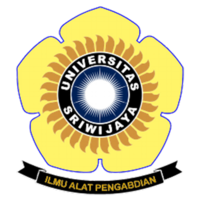Intensifikasi Berkelanjutan Produksi Tanaman Pangan di Lahan Lebak Tropis
Abstract
Lakitan B. 2022. Sustainable intensification of food crop production in the inland tropical wetlands. In: Herlinda S et al. (Eds.), Prosiding Seminar Nasional Lahan Suboptimal ke-10 Tahun 2022, Palembang 27 Oktober 2022. pp. 1-13. Palembang: Penerbit & Percetakan Universitas Sriwijaya (UNSRI).
The need to increase food production at the global, national, and local levels should be continued in line with the increase in population. The inability of a country to meet its food needs will directly impact the country's dependence on imports from other countries. This will be a serious problem if the spike in food prices occurs again with a higher intensity and longer period. The efforts to increase food production today, especially in the future, will be increasingly difficult. The main challenge to increase food production is that the availability of agricultural land tends to decline due to conversion for the benefit of various other economic sectors. Indeed, the current technology is ready to produce food without using land, but the production costs are still too expensive compared to conventional crop cultivation which relies on land availability. The next challenge in efforts to increase food production is the necessity to ensure that the cultivation process does not reduce the quality of ecological functions, let alone damage the environment, so that food production can be sustainable. Currently, in addition to economic and ecological considerations, the food production process is also expected to be inclusive, i.e., providing opportunities for the majority of smallholder farmers and rural communities to participate. The social dimension in food production should not be ignored. The problem of increasing food production will become more complex. The dominant technical-agronomic solutions carried out today have proven ineffective and sometimes generate new problems. As a wiser but challenging alternative is to employ the principle of sustainable intensification in food production. So far, the tropical wetlands have not been intensively utilized in Indonesia. It is time for the wetlands to be managed intensively, ecologically, and inclusively.
The need to increase food production at the global, national, and local levels should be continued in line with the increase in population. The inability of a country to meet its food needs will directly impact the country's dependence on imports from other countries. This will be a serious problem if the spike in food prices occurs again with a higher intensity and longer period. The efforts to increase food production today, especially in the future, will be increasingly difficult. The main challenge to increase food production is that the availability of agricultural land tends to decline due to conversion for the benefit of various other economic sectors. Indeed, the current technology is ready to produce food without using land, but the production costs are still too expensive compared to conventional crop cultivation which relies on land availability. The next challenge in efforts to increase food production is the necessity to ensure that the cultivation process does not reduce the quality of ecological functions, let alone damage the environment, so that food production can be sustainable. Currently, in addition to economic and ecological considerations, the food production process is also expected to be inclusive, i.e., providing opportunities for the majority of smallholder farmers and rural communities to participate. The social dimension in food production should not be ignored. The problem of increasing food production will become more complex. The dominant technical-agronomic solutions carried out today have proven ineffective and sometimes generate new problems. As a wiser but challenging alternative is to employ the principle of sustainable intensification in food production. So far, the tropical wetlands have not been intensively utilized in Indonesia. It is time for the wetlands to be managed intensively, ecologically, and inclusively.
Keywords
food deficit, import dependence, price spikes, land shrinkage, smallholder farmers
Full Text:
PDFArticle Metrics
Abstract view : 184 timesPDF - 244 times
Refbacks
- There are currently no refbacks.

